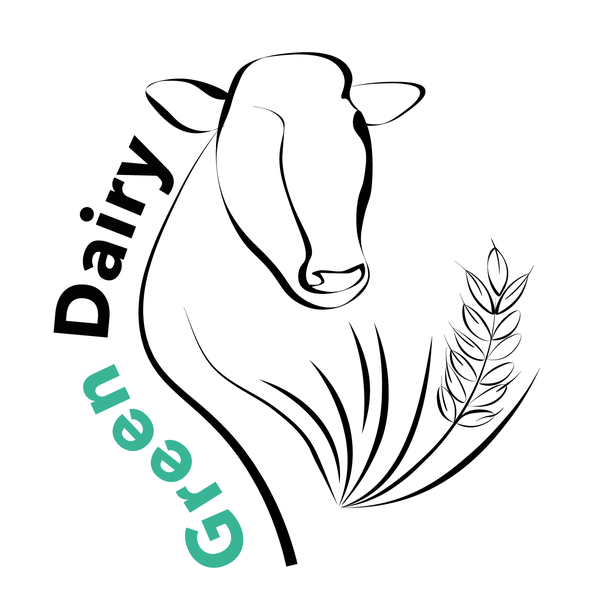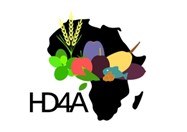Current Projects
F OOD INSECURITY IN U RBAN AND R URAL A FGHANISTAN
A Survey of Afghan Households on their Nutritional Situation
The project aims to analyse household consumption patterns in Afghanistan, measure the severity of food insecurity, explore coping strategies and identify determinants of food insecurity.
For further information:
https://www.uni-giessen.de/de/fbz/zentren/zeu/activities/researchprojects/FURA/fura
As part of its LOEWE excellence initiative, the state of Hesse will be funding the GreenDairy priority under the leadership of Justus Liebig University Giessen (JLU) from next year. Under the leadership of Prof. Dr. Andreas Gattinger (Chair of Organic Farming), the project will spend four years testing agricultural systems that are both ecologically and economically sustainable and enable a high level of animal welfare. The LOEWE priority, in which scientists from the University of Kassel are also involved and for which a total of 4.79 million euros has been applied for, is intended to provide important impulses for agricultural systems research as well as recommendations for action for advisory services and practice.
Industrialisation and specialisation have led to structures in agriculture that are characterised by decoupled material cycles with high nitrogen surpluses, greenhouse gas emissions, competition for land, soil degradation and problems with animal welfare, especially in animal breeding and husbandry. The new research project aims to develop alternatives. One possible solution to close the material cycles again is to keep cattle on mixed farms for milk, meat and plant-based food. So far, there is a lack of knowledge about the effects on ecology, economy and animal welfare of different levels of intensity of such production systems.
This knowledge gap is to be closed in the interdisciplinary research approach involving animal, plant, soil and environmental sciences as well as agricultural and food economics.
The project is based on the new research infrastructure of a digitised dairy farming system at Gladbacherhof.This system enables the scientific comparison of so-called high-input and low-input dairy production systems with digital animal recording, grazing control and feeding and milking robotics. Low-input systems with grazing and predominantly roughage from grassland have so far been considered the standard in organically managed dairy farms.Alternatively, in the high-input system with grazing, the animals are additionally fed a high proportion of the farm's own maize silage and cereals.
Our team will deal with the socio-economic aspects of innovations in organic farming.
Research associate: MSc. Corinna Ullrich ( Corinna.Ullrich )
You can find more information about Green Dairy under the following link
The project aims to combat malnutrition in eight West-, Central- and East African countries through diversification of the food systems. It involves twenty partners from Africa and Europe that represent different research areas (nutritional and food sciences, crop science, agricultural and food economics) and stakeholders (companies, extension experts, political lobbyists).
PhD student: MSc. Robert Asiimwe ( Robert.Asiimwe )
Further Information is available under the following link
https://www.uni-giessen.de/de/ueber-uns/pressestelle/pm/pm151-22euprojekternaehrunginafrika
or in Englisch under
I NTERNATIONAL V IRTUAL A CADEMIC C OLLABORATION
The project aims at the establishment of an international, cross-border, collaboration between Justus Liebig University Gießen (JLU) and the University of Sydney (USyd), which will allow for intercultural and academic exchanges between lecturers and students of Germany and Australia, in the academic field of Sustainable Development.
For further information:
https://www.uni-giessen.de/de/fbz/zentren/zeu/activities/researchprojects/ivac
The State of Hesse and the marketing company Gutes aus Hessen (MGH) launched the "Geprüfte Qualität - HESSEN" quality label in 2003 after successful notification to the European Commission. After 15 years, the label can be found on many food products and indicates to consumers high quality and safe products with a traceable origin from the federal state of Hesse.
In order to measure the success of the "Geprüfte Qualität - HESSEN" quality label and the "Bio-Siegel - HESSEN" organic label, the professorship has been conducting consumer surveys since 2005. Awareness and attitudes of consumers towards the quality labels "Geprüfte Qualität - HESSEN" and "Bio-Siegel - HESSEN" are surveyed. These indicators make it possible to analyse consumer acceptance.
In order to be able to make statements about the economic effects of the quality label "Geprüfte Qualität - HESSEN", an annual survey of the turnover generated in the value chain of products labelled with the quality label and other criteria has been carried out since 2011. This enables a cost-benefit assessment to be made of participation in the "Geprüfte Qualität - HESSEN" quality and origin assurance system.
Indicators collected by the professorship in the course of these studies make it possible to compile a holistic picture of the success of the quality label "Geprüfte Qualität - HESSEN" and the "Bio-Siegel - HESSEN".



